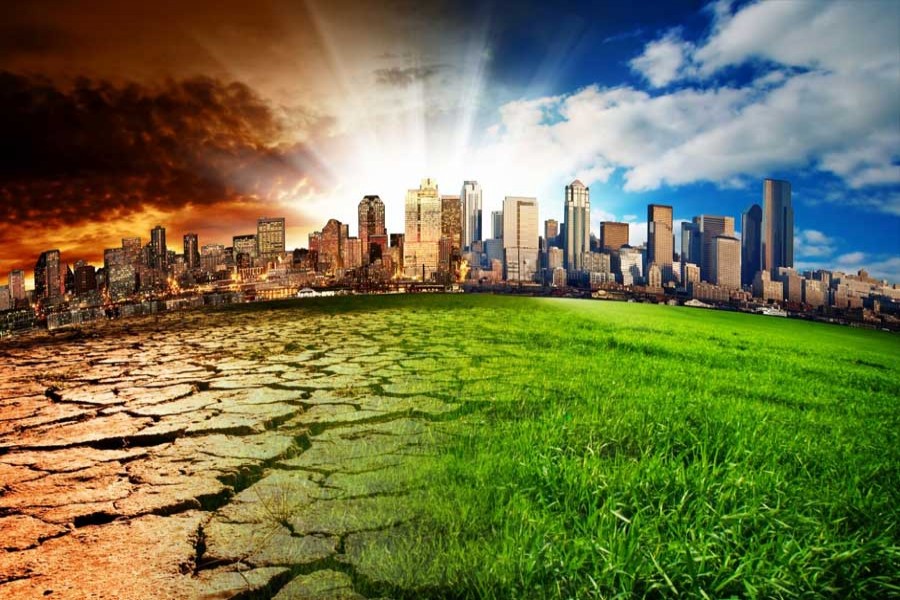Participation of young people in the climate discussion with global efforts is mandatory as it affects the life, livelihood, health, and other socio-economical aspects of youths.
Climate change is one of the greatest threats to the human rights of our generation especially for youth and it has profound impacts on a wide variety of human rights.
Speakers said at a webinar titled `Climate Justice: Capturing Youth Voice from Global South in the Context of Pandemic’ organized by ActionAid Bangladesh on Thursday.
The consultation was participated by young people across Asia, Africa, Central Asia and Europe, along with the young people from Bangladesh.
Youth climate champions and activists from the various countries raised their voice, against the limited or no spaces to the various global decision-making spaces including in COP26.
This year COVID 19 Pandemic making the situation worse because of vaccine inequity, particularly for the young people in the global south.
Rebecca Sultana, founder of Youth Environment and Social Development Society (YESDS) and member of ActionAid International Bangladesh Society (AAIBS) General Assembly inaugurated the event as a chair.
Stating climate change as man-made and we are to be blamed for it, Nahim Razzaq, Member of Parliament, Bangladesh and the Member of the Parliamentary Standing Committee on Ministry of Foreign Affairs, said Climate change is evident and a great problem of today and requires changes to be made by all.
He urged the governments to follow the Paris Agreement to ensure decent ecosystem for the betterment of the world.
He also looks forward to seeing some change happened after the 5 years of the Paris agreement.
Dr Saleemul Huq, Director of the International Centre for Climate Change and Development (ICCCAD) in Bangladesh emphasised action rather than advocacy related to climate issues.
“Advocacy is good, but it is not enough. Advocacy alone no longer can be sufficient. Action is more important along with advocacy and joins the forces of doers. Pick a problem of the locality and start solving the problem by building alliances of people. Action should be initiated locally first and then nationally to globally,” Saleemul Huq said.
Farah Kabir, Country Director of ActionAid Bangladesh said in a video message that young people around the globe want to take COP26 as an opportunity to raise their issues to bring to the global leadership.
But young people are worried that the COP26 is not going to be participatory because of the issue of vaccination.
She also expressed her concern that many countries of the world have not been able to vaccinate their population.
The majority of the population who are not vaccinated are young people because of age bar and many other factors.
She raised a question that “is this restriction supportive of participation especially of the young people and is a COP meaningful where there is no participation of the future generation and present young people?”
She urged for making an agreement for collective action to convey this message to the COP presidency and global leadership.
Climate Activist Saila Sobnom Richi from `Youth Net for Climate Justice Bangladesh’ presented her experiences on the vulnerability of young people amid the COVID-19 pandemic with respect to climate change.
According to her presentation, challenges remain to use cyclone shelter after maintaining COVID-19 protocols which negatively impacts Sexual and Reproductive Health and Rights (SRHR), Water, Sanitation and Hygiene (WASH), health and nutrition of young women.
She argued system change for achieving climate justice and intersectional Justice for humanity.
Among others, young climate Activists- Shreya K.C (Nepal), Disha Ravi (India), Eric Damien (Kenya), Neeshad Shafi (Qatar), Jon Bonifacio (Philippines), Manuel Vásquez (Guatemala), Maria Reyes (Mexico), Laksh Sharma (India), Khun Thet Paing (Myanmar), Joainta Babirye (Uganda) shared their thought and experiences for ensuring climate justice and meaningful climate actions.


